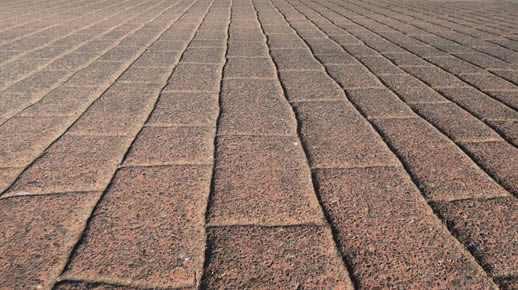Does Sealing Make Your Brick Pavers Slippery?
When it comes to maintaining the pristine look and durability of your brick pavers, sealing pavers is often considered an essential step. However, one common concern among homeowners is whether sealing can make brick pavers slippery. It’s a valid question, especially if you have areas frequently exposed to water, like driveways, pool decks, or garden paths. In this blog, we will explore the impact of sealing on the traction of your brick pavers and how you can make the right choices to maintain both their aesthetics and safety.
Understanding Brick Paver Sealing
Sealing provides a protective layer on the surface of brick pavers, enhancing their color and protecting them from stains, dirt, and the elements. However, the type of sealer used and the method of application can significantly influence whether the sealed pavers become slippery or not.
Types of Sealers
There are two main types of sealers: topical sealers and penetrating sealers.
Topical Sealers: These create a protective film on the surface of the pavers. While they can enhance the color and provide a shiny finish, they can also become slippery when wet, especially if applied too thickly. To reduce slipperiness, one can use anti-slip additives mixed into the sealer.
Penetrating Sealers: These seep into the pores of the pavers without leaving a film on the surface. They are less likely to make the surface slippery as they do not create a continuous layer over the paver. Therefore, they are often the preferred choice for areas prone to water exposure.
Texture and Condition of Pavers
The texture and condition of your brick pavers play a crucial role in determining their traction after sealing.
1. Smooth Surface: Pavers with a smooth surface, such as wet cast brick pavers, can become more slippery when wet. These pavers require special care and the use of non-film forming penetrating sealers to maintain safety.
2. Porous Surface: Brick pavers with a rougher, more porous surface generally maintain better traction even after sealing. However, if a high-solid-content sealer is used, it can fill in the pores, creating a slick surface. The right choice of sealer and its proper application can mitigate this risk.
Application Techniques
Even the best quality sealer can become slippery if not applied correctly. Applying too much sealer or multiple thick coats can result in a glossy, slick finish. It is essential to follow the manufacturer’s instructions or, better yet, hire a professional to ensure the sealer is applied evenly and in the right amount.
Maintaining Non-Slip Surfaces
If you are concerned about the potential for slippery surfaces, here are some tips to maintain traction on your sealed brick pavers:
1. Use Anti-Slip Additives: As mentioned earlier, adding anti-slip additives to the sealer can increase friction and reduce slipperiness.
2. Choose Penetrating Sealers: Opt for penetrating sealers that do not form a film on the surface, thereby maintaining the natural grip of the pavers.
3. Regular Maintenance: Keep your pavers clean and free from mold, mildew, and other substances that can make them slippery.
Trust the Professionals at Kingsway Paver Sealing
At Kingsway Paver Sealing, we understand the importance of both aesthetics and safety for your outdoor spaces. Our team of experts uses top-quality sealers and precise application techniques to ensure your brick pavers look stunning and remain safe to walk on.
For more information or to schedule a consultation, visit our website or give us a call at (239) 440-8245. Let us help you maintain the beauty and safety of your brick pavers with our professional sealing services.
By understanding your specific needs and using the right products and techniques, Kingsway Paver Sealing ensures that your brick pavers remain both beautiful and safe. Trust us to deliver the best results for your outdoor spaces.


